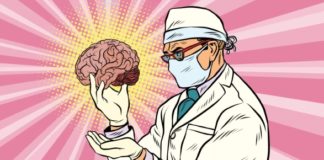Tag: poverty and mental health
Neuroscientists Suggest That Social Inequalities Can Permanently Alter Our Brains
A recently published article illustrates how the concept of neuroplasticity has been used to explain social inequalities, like poverty, by linking them to biomarkers in the brain.
Psychological Effects of Austerity Policies and Poverty Over-Medicalized, Report Finds
Recent report underscores troubling trends cutting across poverty, austerity reform, and mental health narratives in health care settings.
Study Finds Greening Urban Land Improves Mental Health
Remediating dilapidated physical environments in urban settings can contribute to better mental health.
Period Poverty Affects Women’s Mental Health
From The Independent: "A survey of 1,000 women, 500 of whom had suffered from period poverty, revealed that a lack of access to sanitary products can have a far-reaching...
Addressing Poverty and “Mental Illness”
From Psychiatric Times: "In working with people experiencing poverty, clinicians need to be mindful of the privilege that comes with the role of health care...
Who is Responsible for Preventing Suicide?
"A suicide hotline can give a suicidal person someone to talk to. I don’t want to downplay the importance of that. When someone needs...
“Financial Health” is Good Medicine in Mental Health Care
In this piece for the Yale School of Medicine's Department of Psychiatry blog, Lucile Bruce highlights the work of Associate Research Scientist Dr. Annie...
The Link Between Poor Mental Health and Low Income
From Metro: Poverty can have a dramatic effect on people's mental and physical health, as it can impact diet, healthcare access, sleep, and socialization.
"There are plenty...
A System Built on Fear
Experiences such as pain, turmoil, trauma and grief aren’t separate from the person—they shape how that person sees the world, how they cope with the world. To separate those experiences from the person, to call them sick, feels barbaric. It feels as if humans are being taught to fear being human.
Food Insecurity Linked to Mental Health Globally
Global analysis of 149 countries finds food insecurity is associated with poorer mental health.
Are DNA Changes the Link Between Poverty and Mental Illness?
Researchers at Duke University who studied 183 adolescents for three years found that increased depression associated with poverty may be mediated by epigenetic changes in DNA. The...
On the Corner of Distress & Poverty: What Happens to Our...
In the last few years, Mental Health First Aid has been backed by the President of the United States, the First Lady, the Substance Abuse and Mental Health Services Administration (SAMHSA), and the National Council on Behavioral Health (among others). In fiscal year 2015 alone, the federal budget allotted 15 million toward the Council’s MHFA mission of ‘one million trained.’ Yet, this course – promoted with unprecedented fervor and designed to support the average citizen to identify a mental health ‘problem’ in their fellow persons and (strongly) encourage them to get ‘help’ – has little to say about the importance and emotional impact of meeting basic human needs.
Comments on Jeffrey Lieberman and Ogi Ogas’ Wall Street Journal Article...
The March 3rd, 2016 edition of the Wall Street Journal featured an article by past President of the American Psychiatric Association (APA) Jeffrey Lieberman and his colleague, computational neuroscientist Ogi Ogas. The article was entitled “Genetics and Mental Illness—Let’s Not Get Carried Away.” In their piece, the authors started by expressing the belief that a recent study identified a gene that causes schizophrenia, and then discussed whether it is desirable or possible to remove allegedly pathological genes in the interest of creating a future “mentally perfect society.” The authors of the article, like many previous textbook authors, seem unfamiliar with the questionable “evidence” put forward by psychiatry as proof that its disorders are “highly heritable” In fact, DSM-5 Task Force Chair David Kupfer admitted that “we’re still waiting” for the discovery of “biological and genetic markers” for psychiatric disorders.
All in the Brain? An Open Letter Re: Stephen Fry’s Assumptions...
Stephen Fry’s exploration of manic depression (in the current BBC series on mental health, ‘In the Mind‘) has drawn both praise (because of his attempts to destigmatize mental illness) and criticism (because he appears to have a very narrow biomedical understanding of mental illness). I have sent an open letter to the actor which challenges some of his assumptions about mental illness, and offers a very different understanding to that promoted in his recent television programme.
“Childhood Poverty Linked to Brain Changes”
“Children from poorer families are more likely to experience changes in brain connectivity that put them at higher risk of depression, compared with children from more affluent families,” according to new research covered by Medical News Today. "Poverty doesn't put a child on a predetermined trajectory, but it behooves us to remember that adverse experiences early in life are influencing the development and function of the brain. And if we hope to intervene, we need to do it early so that we can help shift children onto the best possible developmental trajectories."
Child Poverty Linked to Early Neurological Impairment
A new NIH-funded study suggests that children from low-income environments are more likely to have neurological impairments. The researchers claim that these neurodevelopmental issues are “distinct from the risk of cognitive and emotional delays known to accompany early-life poverty.”
“Suicide, Mental Illness Risks Increase During Recessions”
The latest economic recession led to a spike in diagnoses for mental illnesses, suicide attempts, and suicide, according to report out of the University...
“U.S. Doctors Advised to Screen Child Patients for Signs of Hunger”
The American Academy of Pediatrics came out with new recommendations that suggest doctors screen all of their child patients for hunger. About 16 million children in the US live in food scarcity and poverty that can lead to physical health issues as well as behavioral issues, which can then be misdiagnosed.



















